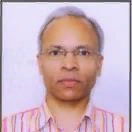
Awadhesh Kumar Singh
Work place: Computer Engineering Department, National Institute of Technology, Kurukshetra, Haryana, India
E-mail: aksinreck@rediffmail.com
Website:
Research Interests: Computer systems and computational processes, Systems Architecture, Distributed Computing
Biography
Prof. Dr. Awadhesh Kumar Singh received B. E. degree in Computer Science & Engineering from Gorakhpur University, Gorakhpur, India in 1988. He received M.E. and Ph.D (Engg) in the same area from Jadavpur University, Kolkata, India. Currently, he is Associate Professor in the Department of Computer Engineering, National Institute of Technology, Kurukshetra, India. His present research interest is mobile distributed computing systems.
Author Articles
A Failure Detector for Crash Recovery Systems in Cloud
By Bharati Sinha Awadhesh Kumar Singh Poonam Saini
DOI: https://doi.org/10.5815/ijitcs.2019.07.02, Pub. Date: 8 Jul. 2019
Cloud computing has offered remarkable scalability and elasticity to distributed computing paradigm. It provides implicit fault tolerance through virtual machine (VM) migration. However, VM migration needs heavy replication and incurs storage overhead as well as loss of computation. In early cloud infrastructure, these factors were ignorable due to light load conditions; however, nowadays due to exploding task population, they trigger considerable performance degradation in cloud. Therefore, fault detection and recovery is gaining attention in cloud research community. The Failure Detectors (FDs) are modules employed at the nodes to perform fault detection. The paper proposes a failure detector to handle crash recoverable nodes and the system recovery is performed by a designated checkpoint in the event of failure. We use Machine Repairman model to estimate the recovery latency. The simulation experiments have been carried out using CloudSim plus.
[...] Read more.Enhancing the Discrete Particle Swarm Optimization based Workflow Grid Scheduling using Hierarchical Structure
By Ritu Garg Awadhesh Kumar Singh
DOI: https://doi.org/10.5815/ijcnis.2013.06.03, Pub. Date: 8 May 2013
The problem of scheduling dependent tasks (DAG) is an important version of scheduling, to efficiently exploit the computational capabilities of grid systems. The problem of scheduling tasks of a graph onto a set of different machines is an NP Complete problem. As a result, a number of heuristic and meta-heuristic approaches are used over the years due to their ability of providing high quality solutions with reasonable computation time. Discrete Particle Swarm Optimization is one such meta-heuristic used for solving the discrete problem of grid scheduling, but this method converge to sub optimal solutions due to premature convergence. To deal with premature convergence, in this paper we proposed the design and implementation of hierarchical discrete particle swarm optimization (H-DPSO) for dependent task scheduling in grid environment. In H-DPSO particles are arranged in dynamic hierarchy where good particles lying above in hierarchy are having larger influence on the swarm. We consider the bi-objective version of problem to minimize makespan and total cost simultaneously as the optimization criteria. The H-DPSO based scheduler was evaluated under different application task graphs. Simulation analysis manifests that H-DPSO based scheduling is highly viable and effective approach for grid computing.
[...] Read more.Other Articles
Subscribe to receive issue release notifications and newsletters from MECS Press journals